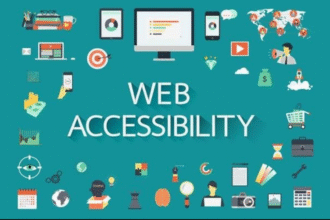We live in an age of unprecedented information. From personal photos stored in the cloud to massive databases of scientific research, we’re generating more digital data than ever before. But have you ever stopped to wonder if it will all last? The response may be more troubling than you think. There is a possibility that we are about to enter a “digital dark age,” which is a time in the not-too-distant future during which a significant amount of digital information from today will either become unavailable or be lost forever.
Why is this happening?
The problem isn’t just about a hard drive failing. It’s a multi-layered issue with three main culprits:
- Technological Obsolescence: Think about the floppy disk. A few decades ago, it was the standard for saving files. Nowadays, it is nearly impossible to locate a computer with a floppy drive.file formats, software programs, and storage media. The latest smartphone or cloud service you use today may be completely unreadable in 50 years.
- Data Rot and Degradation: While we often think of digital data as permanent, it’s not. The physical storage media—from hard drives to SSDs and even magnetic tapes—all have a limited lifespan. Data can become corrupted over time, and without constant maintenance and migration, it’s at risk of simply fading away.
- The Sheer Volume of Data: We’re creating so much data that it’s becoming difficult to manage and preserve. Deciding what to save and what to delete is a monumental task for individuals and organizations alike. Important information can easily get lost in the noise of countless selfies and spam emails.
The Real-World Impact
This isn’t just a hypothetical problem. We’re already seeing the effects. Early websites from the 1990s are often unviewable, and many video games from that era can no longer be played on modern hardware. Even NASA has faced this challenge, spending years recovering data from the Viking Mars missions because the original tapes and hardware were so old.
Imagine a future where historians can no longer access personal blogs or social media feeds to understand our culture. Imagine scientists unable to replicate or verify research because the original data is locked in an obsolete format. Our collective digital memory is fragile, and we’re not doing enough to protect it.
A Path Forward: Preservation and Responsibility
So, what’s the solution? It requires a shift in how we think about technology and data.
- Standardization: The industry needs to agree on open, future-proof file formats that are easier to preserve.
- Active Migration: Both companies and individuals need to get into the habit of regularly migrating their data to new formats and storage media.
- Digital Archives: Institutions like libraries and museums are already working on massive digital preservation projects. These efforts need more support and resources to scale.
The digital dark age isn’t inevitable, but avoiding it will require conscious effort and a commitment to making our data more resilient. The memories, knowledge, and history we’re creating today are a legacy for future generations. It’s our responsibility to ensure they don’t simply vanish into the ether.





